Would anyone care to explain to me how the value of this.oBalance.QouteBalance is evaluated to be true for being less than zero when it clearly isn't? Please see image below.
Am I missing something fundamental when it comes to comparing doubles in C#??

public double QouteBalance { get; set; }
UpdateBalance_PositionOpenned() is not being called in a loop, but is being called as part of a more complex event driven procedure that runs on the ticks of a timer (order of milliseconds)
EDIT: Pardon the code if it's messy but I couldn't edit it as this was a run-time error after quite a long run-time so was afraid wouldn't be able to recreate it. The Exception message is not correct and just a reminder for myself. The code after the exception is code I forgot to comment out before starting this particular run.
EDIT 2: I am building and running in Release Mode.
EDIT 3: Pardon my ignorance, but it would seem that I am in fact running in a multi-threaded environment since this code is being called as part of a more complex object method that gets executed on the ticks (Events) of a timer. Would it possible to ask the timer to wait until all code inside its event handler has finished before it can tick again?
EDIT 4: Since this has been established to be a multi-threading issue; I will try to give wider context to arrive at an optimized solution.
I have a Timer object, which executes the following on every tick:
- Run a background worker to read data from file
- When background worker finishes reading data from file, raise an Event
- In the event handler, run object code that calls the method below (in the image) and other multiple routines, including GUI updates.
I suppose this problem can be avoided by using the timer Tick events to read the from file but changing this will break other parts of my code.